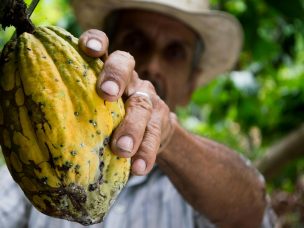A change to a plant-based diet that included limiting oils and daily soybean consumption significantly reduced the frequency and intensity of postmenopausal hot flashes and related symptoms.
Postmenopausal vasomotor symptoms impair quality of life, create recurring discomfort, and interfere with sleep. According to the Women’s Health Initiative (WHI), increasing whole grains, fruits, and vegetables while lowering dietary fat had a marginally positive effect on health. A study in the journal Menopause evaluated the impact of dietary management on vasomotor symptoms and quality of life associated with menopause.
Study Design and Population
A low-fat, vegan meal and cooked soybeans (86 g daily) were included in the intervention for postmenopausal women (n = 84). A control group with no dietary modifications was assigned. The Menopause-Specific Quality of Life questionnaire was used to gauge the frequency and intensity of hot flashes as well as vasomotor, sexual, psychosocial, and physical symptoms throughout 12 weeks.
Decrease in Hot Flashes
The overall hot flash rate dropped by 78% (P < 0.001) in the intervention group and by 39% (P < 0.001) in the control group. In the intervention group, the reduction in moderate-to-severe hot flashes was 88%, from 5.0 to 0.6 per day (P < 0.001), as opposed to 34%, from 4.4 to 2.9 per day (P < 0.001) in the control group.
Relationship Between Hot Flashes and Dietary Intake
After accounting for calorie intake, variations in the incidence of severe hot flashes were directly correlated with variations in fat intake (P = 0.01) and inversely correlated with variations in carbohydrate (P =0.006) and fiber intake (P = 0.03) such that the intensity of severe hot flashes increased as fat consumption increased and decreased as carbohydrate and fiber consumption increased. Daidzein and genistein consumption were negatively correlated with frequency of moderate-to-severe hot flashes (r = 0.29, P = 0.03, and 0.27, P = 0.04).
Reduction in the Incidence of Sexual, Psychosocial, and Physical Symptoms
The intervention group experienced greater reductions in the vasomotor (P = 0.004), physical (P = 0.01), and sexual (P = 0.03) aspects of quality of life, as indicated by the Menopause-Specific Quality of Life questionnaire scores. Also, urine equol was analyzed after consuming 86 g of cooked soybeans twice daily for 3 days, but neither seasonal variability nor equol production status were related to the level of improvement.
Hence, the relationship between changes in weight and dietary intake, along with the observed improvements in vasomotor symptoms, provide further evidence that supports and expands upon the more modest findings of the Women’s Health Initiative.
Source:
Barnard, N. D., Kahleova, H., Holtz, D., Znayenko-Miller, T., Sutton, M., Holubkov, R., Zhao, X., Galandi, S. L., & Setchell, K. D. (2022). A dietary intervention for vasomotor symptoms of menopause: a randomized, controlled trial. Menopause, 30(1), 80–87. https://doi.org/10.1097/gme.0000000000002080









